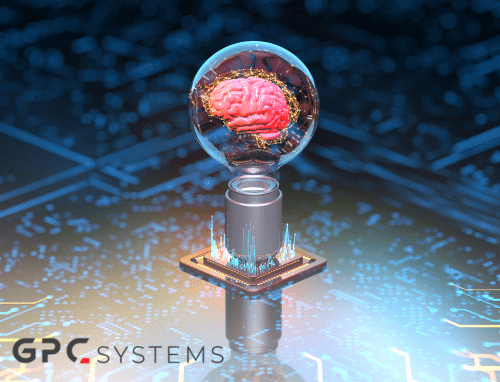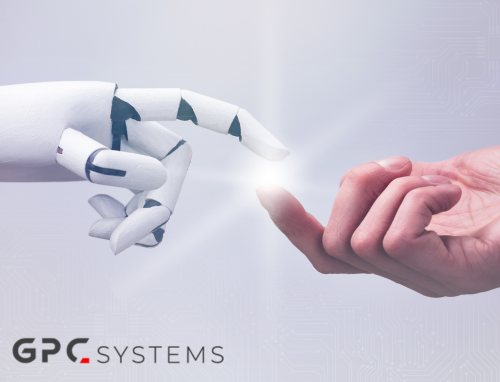
The Quantum AI Revolution: A New Dawn in Computing
In the world of technology, few developments hold as much promise as the merging of quantum computing and artificial intelligence (AI). This fusion, known as Quantum AI, is not just another step forward—it is a leap into a future that could reshape our world in ways we are only beginning to understand. But what exactly is Quantum AI? Who are the visionaries behind it, and how does it work? Perhaps most importantly, why do we need it, and what possibilities does it open up for our future?
A Journey into Quantum AI
Imagine standing on the threshold of a new era, where the limits of current technology begin to dissolve, and the impossible becomes possible. This is the world of Quantum AI. At its core, Quantum AI represents the combination of quantum computing, which operates on the mysterious principles of quantum mechanics, and AI, the technology that allows machines to learn and make decisions.
Traditional computers, which we use every day, process information in binary—using bits that exist as either 0s or 1s. This method, though powerful, has its limitations, especially when dealing with complex problems that require enormous computational power. Quantum computers, on the other hand, use quantum bits or “qubits,” which can exist in multiple states at once, thanks to the principles of superposition and entanglement. This allows quantum computers to perform calculations at speeds that are orders of magnitude faster than anything we currently possess.
When you combine this quantum power with AI’s ability to learn from data and improve over time, you get Quantum AI—a tool with the potential to solve some of the world’s most challenging problems.
The Visionaries Behind Quantum Ai
The journey to Quantum AI hasn’t been the work of one individual but rather the collective efforts of scientists, researchers, and technologists over several decades. It began with the theoretical foundations laid by physicists like Richard Feynman and David Deutsch in the 1980s, who first explored the concept of quantum computing. They imagined a world where the strange properties of quantum mechanics could be harnessed to perform calculations far beyond the reach of traditional computers.
Fast forward to today, and companies like IBM, Google, and Microsoft are at the forefront of turning this theory into reality. These tech giants have built some of the first functioning quantum computers and are now exploring how to integrate them with AI. Startups like Xanadu and Rigetti Computing are also making waves, developing new quantum algorithms and applications that could soon become a part of everyday life.
How Quantum AI Works: A Glimpse Under the Hood
To understand how Quantum AI works, think of it as a supercharged version of traditional AI. In AI, particularly in machine learning, algorithms process vast amounts of data to recognise patterns, make predictions, or automate decisions. However, these tasks can become incredibly complex and time-consuming, especially when the data is high-dimensional or the problem involves numerous variables.
This is where quantum computing comes in. By leveraging qubits, Quantum AI can evaluate many possibilities simultaneously, drastically reducing the time it takes to find optimal solutions. For example, consider an AI tasked with discovering new materials for energy storage. Traditional methods might take years to sift through all possible molecular combinations, but with Quantum AI, this process could be completed in a fraction of the time.
Additionally, quantum algorithms like Shor’s algorithm and Grover’s algorithm allow quantum computers to perform specific tasks, such as factoring large numbers or searching large databases, exponentially faster than classical computers. When applied to AI, these algorithms can enhance everything from data classification to optimisation problems, making Quantum AI an incredibly powerful tool.
Why We Need Quantum AI
As our world becomes more interconnected and data-driven, the limitations of classical computing are increasingly apparent. AI has already transformed industries like healthcare, finance, and logistics, but it still struggles with problems that involve massive datasets, complex simulations, or high-dimensional data.
Quantum AI offers a solution to these challenges. In healthcare, for instance, it could revolutionise drug discovery by simulating molecular interactions at a scale never before possible. This could lead to the development of new treatments and even cures for diseases that currently have no answer. In finance, Quantum AI could analyse market trends in real-time, optimising trading strategies and reducing risk in a way that today’s algorithms simply cannot match. Even in climate science, Quantum AI could model the Earth’s atmosphere with unprecedented accuracy, helping us better understand and mitigate the effects of climate change.
What the Future Holds
The future of Quantum AI is both exhilarating and uncertain. We are still in the early stages, and much work remains to be done before its full potential is realised. However, the possibilities are vast. Imagine a world where complex problems—like predicting economic crises, finding new energy sources, or even understanding the human brain—can be solved in moments rather than years.
But with these advancements come new responsibilities. The power of Quantum AI also raises ethical questions. As we push the boundaries of what technology can do, we must also consider how it should be used. Issues like data privacy, algorithmic bias, and the potential for quantum-enhanced cybersecurity threats will need to be carefully managed as we move forward.
In conclusion, Quantum AI is not just an incremental improvement in technology—it represents a fundamental shift in how we approach problems and envision solutions. It is the convergence of two of the most revolutionary technologies of our time, and it holds the promise of a future where the limits of what we can achieve are constantly being redefined. As we stand on the brink of this new era, the real question is not just what Quantum AI can do, but how we will choose to harness its power.
At GPC, we are passionate about exploring new technologies and integrating AI into our software. This enables us to provide our clients with efficient solutions that save both time and money.




